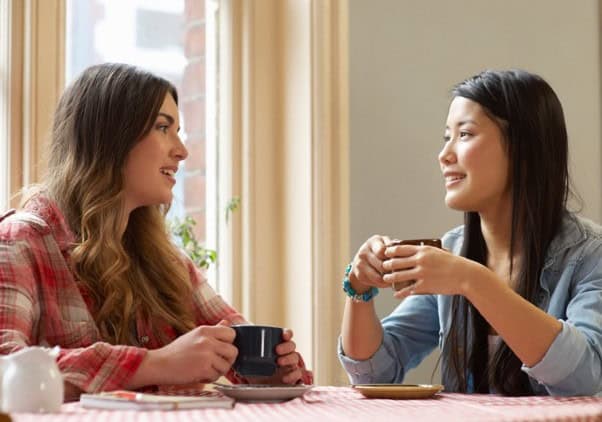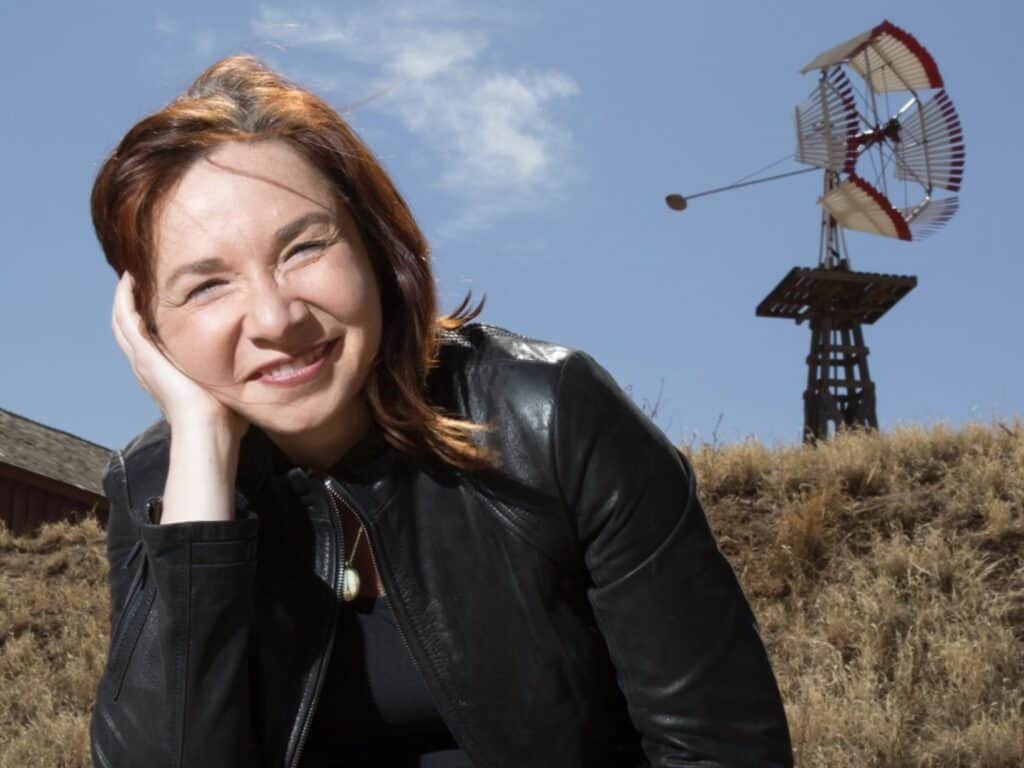Climate conversations are the best way to influence others and speed more action and awareness
Peterborough Examiner – August 9, 2024 – by Drew Monkman
“What can I do? Little old me alone in the world against such a huge problem as climate change.” Well, the most influential thing we all can do is TALK ABOUT IT.
According to Dr. Katharine Hayhoe, a Canadian atmospheric scientist and climate change communicator working in Texas, having climate conversations is actually the single most important action anyone can take. Speaking on the July 20th edition of the CBC radio show and podcast “What on Earth”, Hayhoe explained that polling shows “the vast majority” of people in Canada and the U.S. care about climate, but that only 50 percent ever talk about it. In my experience, it’s even less than that.
You might wonder why simply talking is so consequential. “The most trusted messenger on climate change, according to the social science, is people we know — friends, family, neighbours, colleagues,” says Hayhoe. In other words, it’s not the scientists themselves.
The research also shows that conversations are the best way to accelerate more action. By talking about climate change, you influence others who, in turn, become more likely to have similar conversations. Most importantly, these conversations influence the way people vote and put pressure on politicians to adopt more effective policies. At this late date, the only way we can reduce the future impacts of climate change is through collective action.
Having these conversations simply requires moving a bit out of our comfort zone and learning to communicate in ways that bring us closer together and help us collaborate.
What doesn’t work is simply presenting a series of climate facts or going into these conversations with the sense that, “I’m right and I’m going to convince somebody else.”
Here are some pointers to help you get started.
1. A bit of discomfort is fine
As a starting point, you need to accept the idea that uneasiness is healthy and normal. Our world needs to undergo deep transitions and deep change can feel difficult. Remember, though, that most people are concerned about the issue, and you’ll almost certainly find more areas of agreement than you expect.
Try your best to enjoy the conversation. Ask lots of questions and find out what climate change means to the other person. Listen attentively and show you’ve heard. Don’ try to fit in every talking point and be sure to end on a positive note. Remember that several conversations may be necessary.
2.Focus on common ground
Look for things in your shared life experience where your values, interests and emotions align. This will help build trust. As much as possible, show empathy and put yourself in the other person’s shoes.
Common ground can be found in the things we all want: a promising future for our kids and grandchildren; to be prepared for and protected from extreme weather events; clean air to breathe; economic security in a world where many jobs are threatened by a changing climate; and a healthy world for nature and local and global ecosystems.
In the CBC interview, Hayhoe talked about the sound engineer she met while recording the audio version of her book “Saving Us: A Climate Scientist’s Case for Hope and Healing in a Divided World”.The engineer approached her with some skeptical questions on global warming. Rather than starting to pepper him with facts, Hayhoe says she asked him how long he’d lived in the town where they both reside. “Pretty soon he was telling me about how he grew up fishing, and now he takes his grandchildren fishing. And I said, ‘Do you feel like things have changed?’ And then he was telling me all about how the lake was getting warmer and it was clogged with algae and the fish weren’t the same.”
Next, they connected over their shared hobby, downhill skiing, and how the slopes in nearby New Mexico haven’t had enough snow in recent years. At the end of the conversation, he was asking what climate action he could take.

3. Keep it local
It’s important to choose examples that are local and relevant, so your friend or family member can connect with the issue. Talking about local impacts is a lot more compelling than talking about the planet at large. You might discuss how the continual “freeze and thaw” cycles of milder winters makes sidewalks treacherous; how skiing, snowmobiling or outdoor skating conditions are so unpredictable now; how you were impacted by the 2022 derecho windstorm, the flood of 2004 or the choking wildfire smoke of last summer; how insurance premiums are rising and will continue to rise as a result of extreme weather; or how the average temperature for Peterborough over the last 365 days has been 8.5 C – a full 2.6 C above average and, compared to the historic average, extremely warm. (source: CBC News Climate Dashboard).
4.Tell a (vulnerable) story
Tell your personal story. Explain how climate change has affected you or someone close to you. This is probably the most powerful tool you have. Share your fears and anxieties about the world your children or grandchildren will inherit. Acknowledge how you may be struggling to stay positive and hopeful about the future. Consider sharing your concerns and solutions on social media, too, but don’t waste time engaging with climate deniers.
The personal stories I like to tell include the following:
- How the wildfire smoke in Vancouver has been so bad in recent summers that my grandchildren couldn’t play outside for days
- How saddened I am by all the dead, dying and fallen trees in the Kawarthas, many of which have succumbed to extreme weather events like windstorms and to pests that are thriving in a warming climate
- How the higher CO2 levels and warmer climate are allowing invasive species, poison ivy, ragweed, and ticks to thrive in the Kawarthas.
- How I suffer from soaring pollen levels and a much longer pollen season
- How the four seasons – something that’s always brought me great joy – are quickly becoming unrecognizable, especially in fall and winter
5. Actions…and privilege
When it comes to climate solutions, personal lifestyle changes have a role to play but they are far less important than systemic change. In some ways, it’s a privilege to be able to do the best things for the environment right now like being able to afford an electric car or a heat pump for your home.
Likewise, it’s fortunate and a privilege to have family that lives close enough to see them without emissions-heavy air travel. My wife and I, for example, have two children and their families living in Vancouver and the only way we can see them on a regular basis is by flying. It’s therefore vitally important not to shame people when they can’t make the lifestyle changes that you might be making.
Emphasize how your actions – or the actions you hope to take – are realistic and doable. This might include things like saving energy at home, walking or biking when you can, buying fewer new clothes (textiles generate huge amounts of CO2), and adopting a more plant-based diet. Acknowledge that everyone needs to find actions that work for them.
One thing we all can do is demand collective solutions. These are far more important than individual actions but they demand government and corporate leadership. This means voting for politicians and parties with policies that will reduce local, provincial and national greenhouse gas emissions to zero as soon as possible. Learn what climate experts are saying about each party’s policies.
Finally, with the stakes from quickly-worsening climate change as high as they are right now, we can’t let fear of “rocking the boat” stop us from talking about our climate fears. With a federal election approaching, remaining silent is the perfect recipe for things to only get worse. Who we elect is crucially important. We just need to have these conversations in ways that don’t damage our relationships. When more extreme climate events like floods, heatwaves, and wildfires inevitably come, it’s the people who care about us that are going to help us.
